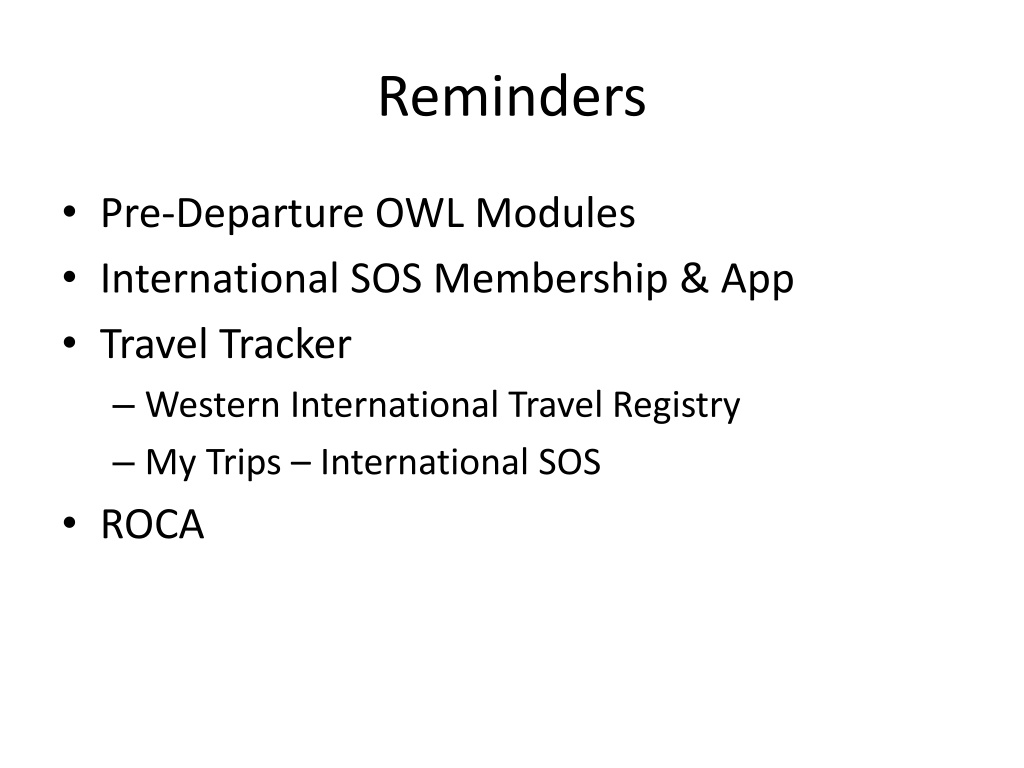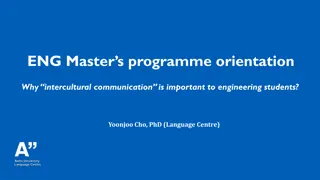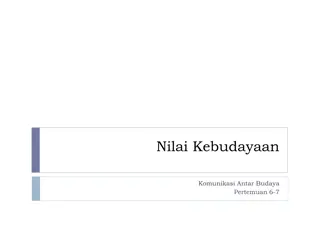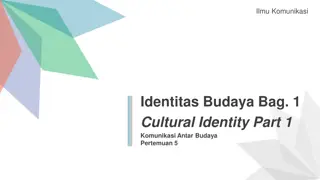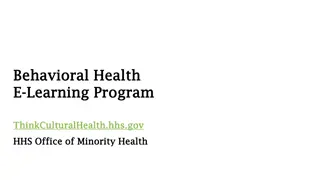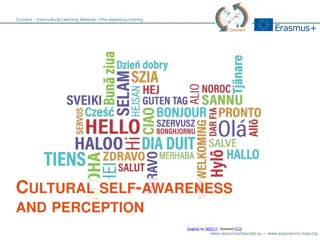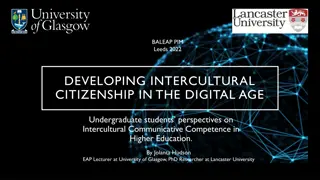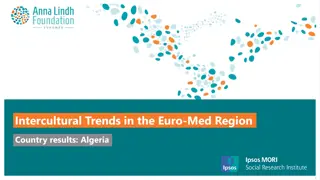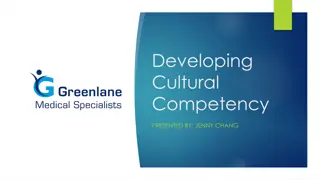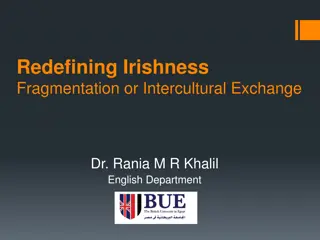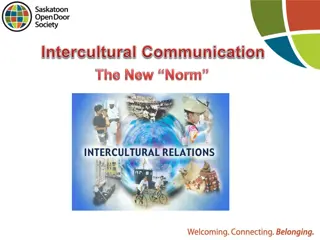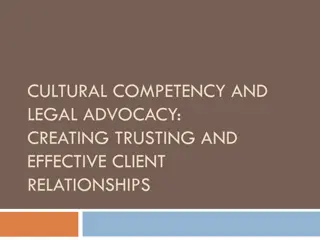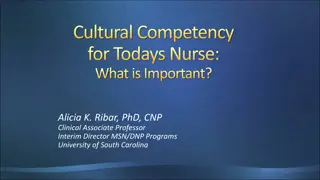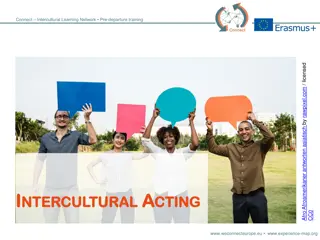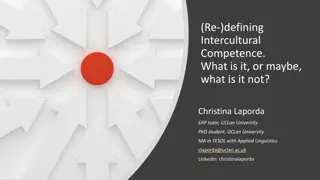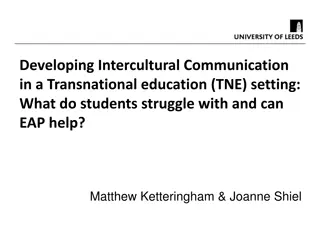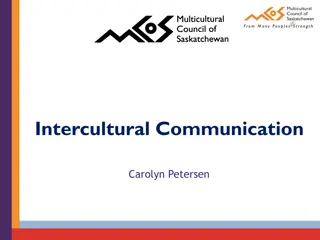Understanding Intercultural Competency and Cultural Identity
Explore the concept of culture, intercultural competency, and cultural identity through reflections on one's heritage, experiences, values, and beliefs. Learn the importance of developing intercultural competency to communicate effectively across diverse cultures.
- Intercultural Competency
- Cultural Identity
- Cultural Heritage
- Values and Beliefs
- Cross-Cultural Communication
Download Presentation

Please find below an Image/Link to download the presentation.
The content on the website is provided AS IS for your information and personal use only. It may not be sold, licensed, or shared on other websites without obtaining consent from the author. Download presentation by click this link. If you encounter any issues during the download, it is possible that the publisher has removed the file from their server.
E N D
Presentation Transcript
Reminders Pre-Departure OWL Modules International SOS Membership & App Travel Tracker Western International Travel Registry My Trips International SOS ROCA
Culture & Intercultural Competency
Culture Set of learned practices, beliefs, and patterns often transmitted from generation to generation. Culture is a noun and therefore often viewed as something we have rather than learn.
What is your culture? What do you know about your cultural heritage? What has contributed to your cultural identity? What, from your international or intercultural experience, made your culture evident to you? In what situations have you experienced cultural difference? Can you identify your values and beliefs?
https://tedcdnpi-a.akamaihd.net/r/tedcdnpe-a.akamaihd.net/images/ted/3527cd41287ab9d66473e112dbd339c6e515ef38_1600x1200.jpg?quality=89w=800https://tedcdnpi-a.akamaihd.net/r/tedcdnpe-a.akamaihd.net/images/ted/3527cd41287ab9d66473e112dbd339c6e515ef38_1600x1200.jpg?quality=89w=800 Chimamanda Ngozi Adichie: The danger of a single story
Intercultural Competency (IC) IC is a set of knowledge, feelings and skills that enable us to communicate, work and function effectively in pluralistic contexts. Developing IC is ongoing that entails growing awareness of one s own and other cultures. IC involves increased sensitivity about differences in values, beliefs and behaviours. It involves developing skills to determine the most appropriate practices and behaviour to communicate and work effectively and respectfully across cultures.
ABCs of Intercultural Competency AFFECTIVE - emotions, feelings Sensitivity ATTITUDES COGNITIVE - beliefs & knowledge BEHAVIOURAL - actions
Skill Building: The Something s Up Cycle Stage 1: Something s Up! Stage 4: Informed Action Stage 2: Suspend Judgement Stage 3: Make Sense
Stage Questions to Guide Understanding Describe the Something s Up What happened? How does each person feel? Stage 1: Something s Up! Identify & Suspend Judgment What are the judgments and conclusions? Stage 2: Suspend Judgement Step 1: What is this about? What did each person expect? Step 2: How are the expectations similar/different? Stage 3: Make Sense Informed Action What can be done to move forward in the short term? In the long term? Stage 4: Informed Action
Geert Hofstede Country Comparison Power Distance Individualist vs. Collectivist Masculine vs. Feminine Uncertainty Avoidance Long Term vs. Short Term Orientation Indulgence vs. Restraint
